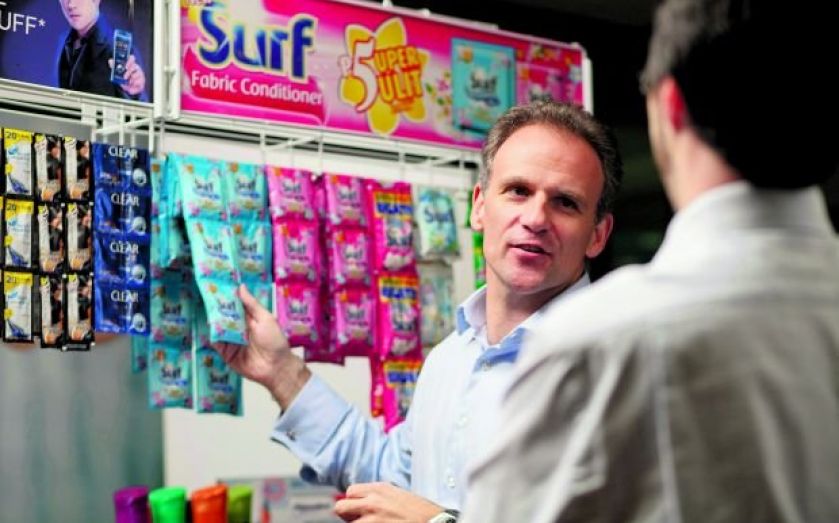Dave Lewis: Tesco banks on first outsider in its 95-year history. Will he make a difference?

Tesco’ incoming boss Dave Lewis will have no easy task on his hands when he takes the reins at the UK’s biggest retailer and the world’s third largest chain in October.
But while he lacks the Tesco genes that Philip Clarke had from spending 39 years at the grocer, Lewis makes up for it in his experience overseeing Unilever’s fast-growing personal care division and turning around a string of brands that stock Tesco’s shelves.
The 49 year-old Yorkshireman joined the Anglo-Dutch consumer giant Unilever in 1987 as a trainee after graduating from Trent business School in Nottingham.
One of his early achievements that marked him out was launching the soap brand Dove in the UK in 1992 and driving its “Love your body” campaign, which promoted images of women’s bodies of all shapes and sizes.
His career also included a stint in South America in 1996, where he helped defend Unilever’s laundry detergent business against competition from arch rivals Procter & Gamble.
His next move in 1999 was to Indonesia, one of Unilever’s key markets, where he tackled political unrest and hyperinflation to grow the company’s personal care business at an average rate of 30 per cent per year.
In 2005 Lewis returned to the UK and took up the role of managing director of Unilever’s home and personal care before being appointed chairman of UK and Ireland in 2008 when Unilever consolidated all of its businesses.
One of Lewis’s former colleagues described him as “confident, charismatic” and someone who “will ask tough questions” in his role at Tesco.
“He will certainly have a lot of focus on how everything is contributing to the brand Tesco and what it means to its customers. Philip Clarke didn’t seem to understand that – he was more of an operator,” he told City A.M.
Bernstein analyst Bruno Monteyne said Lewis’s departure was “clearly a loss” for Unilever but asked: “Will the lack of retail experience be a problem to set a new strategy for a retailer that is having an existential crisis?”
HSBC’s Dave McCarthy warned that even with a change in strategy under Lewis, a successful turnaround will take five to 10 years.
PROFILE: PHILIP CLARKE
Tesco’s Philip Clarke told the City just last month that he had no plans to step down as chief executive.. But yesterday – the day before he was due to celebrate his 40-year career at the supermarket chain – that prophecy suddenly rang false. The board has decided the company is in need for a change in strategy and Clarke is paying the price.
The Tesco lifer, who began his career at the age of 14 working at a local store in Liverpool run by his father, made the ideal candidate to take on the chief executive role in 2011. However Clarke’s efforts at reviving Tesco’s slowing UK sales have not gone far enough. The group has been criticised by analysts for trying to be too many things to too many customers, “giving a free ride to the targeted retailers”.
Clarke was a divisive leader, known for his tough management style, and one who did not endear himself to the City or the press after the group banned a journalist from a press dinner earlier this year.
But perhaps his stance with the company was not quite as tough.
3 REASONS PHILIP CLARKE HAD TO LEAVE…
1 Clarke failed to react fast enough to the threat from German discounters Aldi and Lidl and to slash prices.
2 Investors’ patience had worn thin and Tesco was in need of a “leader with fresh perspectives”, as Sir Richard Broadbent said,
3 His efforts to turn Tesco around have failed to revive sales despite spending over £1bn on staff, stores and product revamps.
3 REASONS PHILIP CLARKE WAS UNLUCKY…
1 Clarke inherited Tesco’s loss-making Fresh & Easy venture in the US, a legacy from his predecessor Sir Terry Leahy.
2 He has had the challenge of reviving Tesco’s UK business in a tough consumer market amid fast-changing shopping habits.
3 Clarke has also had to grapple with Tesco’s sprawling store estate, inherited after a decade of over-expansion in the 90s.